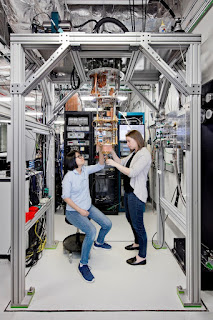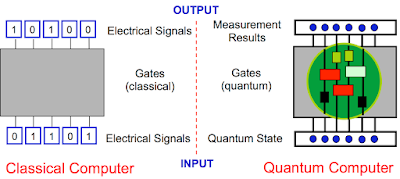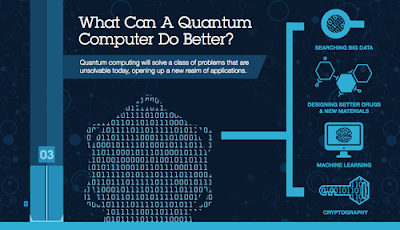Twitter Feed
NPR on Cloud Computing
You know it’s important when NPR covers it !! On the “All Things Consider” radio show, NPR took a look into cloud computing. I’m not sure if Computing In The…
Sun Federal Cloud Computing eBook
Sun Federal now has it’s ebook on cloud computing available for all. The website doesn’t really offer any new information, but it does highlight how Sun Federal is targeting the…
Amazon Elastic Block Store
Last week, with their announcement of Elastic Block Store, Amazon has made enterprise class storage in the cloud a reality. According to Dion Hinchcliffe of Ziff Davis,”Elastic Block Store finally…
HP CTO On the Future
In a recent Web Guild article, Shane Robinson, Chief Strategy & Technology Office for HP outilined his belief that we are in the early stages of a major shift. As…
Google serves as first line of defense during Russia’s invasion of Georgia (A plug for the cloud)
As reported by the Christian Science Monitor, “As Georgian troops retreated to defend their capital from Russian attack, the websites of their government, also under fire, retreated to Google. In…
Apptis and Servervault announce Fedcloud
On August 18th, Apptis announced a partnership with ServerVault to offer a trusted cloud computing environment to federal agencies. Called Fedcloud they are offering a federally compliant, on-demand infrastructure that…
SOA-R Educational Series Schedule Changes
Since launching the SOA-R series back in July, cloud computing has become a hot topic among national security professionals. Evidence of this high level of interest is obvious from the…
Comments from Mr. Robert Carey, DON CIO and Army COS General George W. Casey, Jr
Over the last couple of weeks, I’ve had the distinct pleasure to listen to both Mr. Robert Carey, CIO, Department of the Navy, and General George W. Casey, Jr., Chief…
Akamai at SOA-R Session
Had another very enlightening SOA-R session last week. Of particular note to me was Akamai’s vision of cloud computing. As presented by Fran Trently, Sr. Director Public Sector, Akamai is…
Six Benefits of Cloud Computing
A Public CIO magazine article, to be published later this fall, will highlight six main benefits of cloud computing. Reduced Cost Increased Storage Highly Automated Flexibility More Mobility Allows IT…
- The release of a new API (Application Program Interface) for the IBM Quantum Experience that enables developers and programmers to begin building interfaces between its existing five quantum bit (qubit) cloud-based quantum computer and classical computers, without needing a deep background in quantum physics.
- The release of an upgraded simulator on the IBM Quantum Experience that can model circuits with up to 20 qubits. In the first half of 2017, IBM plans to release a full SDK (Software Development Kit) on the IBM Quantum Experience for users to build simple quantum applications and software programs.
The IBM Quantum Experience enables anyone to connect to IBM’s quantum processor via the IBM Cloud, to run algorithms and experiments, work with the individual quantum bits, and explore tutorials and simulations around what might be possible with quantum computing. Since its launch less than a year ago, about 40,000 users have run over 275,000 experiments on the IBM Quantum Experience. It has become an enablement tool for scientists in over 100 countries and, to date, 15 third-party research papers have been posted to arXiv with five published in leading journals based on experiments run on the Quantum Experience.
 The broad availability of quantum computing capability could prove to be a significant blow to current data encryption practices. In 2015 the US National Security Agency actually advised US agencies and businesses to prepare for a time when the cryptography protecting virtually all e-mail, medical and financial records, and online transactions would be rendered obsolete by quantum computing. The US National Institute for Standards and Technology (NIST) is also running a competition to spur work on post-quantum algorithms.
The broad availability of quantum computing capability could prove to be a significant blow to current data encryption practices. In 2015 the US National Security Agency actually advised US agencies and businesses to prepare for a time when the cryptography protecting virtually all e-mail, medical and financial records, and online transactions would be rendered obsolete by quantum computing. The US National Institute for Standards and Technology (NIST) is also running a competition to spur work on post-quantum algorithms. - Drug and Materials Discovery: Untangling the complexity of molecular and chemical interactions leading to the discovery of new medicines and materials;
- Supply Chain & Logistics: Finding the optimal path across global systems of systems for ultra-efficient logistics and supply chains, such as optimizing fleet operations for deliveries during the holiday season;
- Financial Services: Finding new ways to model financial data and isolating key global risk factors to make better investments;
- Artificial Intelligence: Making facets of artificial intelligence such as machine learning much more powerful when data sets can be too big such as searching images or video; or
- Cloud Security: Making cloud computing more secure by using the laws of quantum physics to enhance private data safety.
This content is being syndicated through multiple channels. The opinions expressed are solely those of the author and do not represent the views of GovCloud Network, GovCloud Network Partners or any other corporation or organization.
( Thank you. If you enjoyed this article, get free updates by email or RSS – © Copyright Kevin L. Jackson 2017)
Cloud Computing
- CPUcoin Expands CPU/GPU Power Sharing with Cudo Ventures Enterprise Network Partnership
- CPUcoin Expands CPU/GPU Power Sharing with Cudo Ventures Enterprise Network Partnership
- Route1 Announces Q2 2019 Financial Results
- CPUcoin Expands CPU/GPU Power Sharing with Cudo Ventures Enterprise Network Partnership
- ChannelAdvisor to Present at the D.A. Davidson 18th Annual Technology Conference
Cybersecurity
- Route1 Announces Q2 2019 Financial Results
- FIRST US BANCSHARES, INC. DECLARES CASH DIVIDEND
- Business Continuity Management Planning Solution Market is Expected to Grow ~ US$ 1.6 Bn by the end of 2029 - PMR
- Atos delivers Quantum-Learning-as-a-Service to Xofia to enable artificial intelligence solutions
- New Ares IoT Botnet discovered on Android OS based Set-Top Boxes




